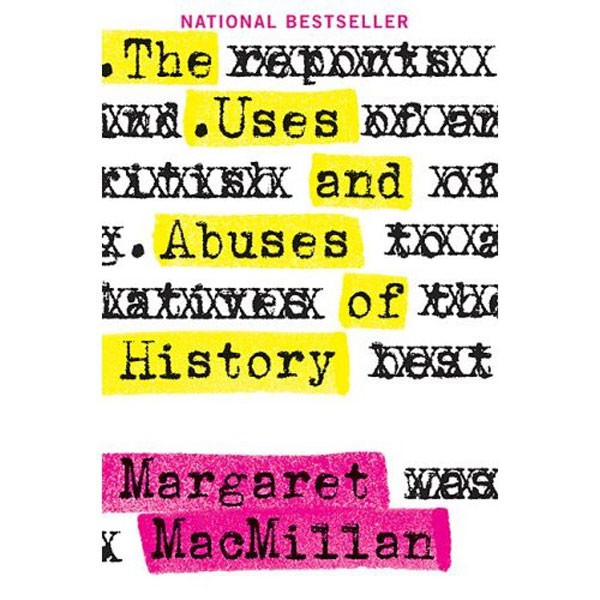
The Uses and Abuses of History
By Margaret MacMillan
Viking, 2008
What does “history” mean to you? A list of names and dates? Great deeds of long ago? “History,” says historian Margaret MacMillan, is something we all do.” Formerly at the University of Toronto, now at Oxford, Professor MacMillan is well-known for her Governor General’s Award-winning book, Paris 1919, and, more recently, for Nixon in China. These thoroughly researched, academically respected books are entertaining reads. Similarly reader-friendly is her latest book, The Uses and Abuses of History.
MacMillan finds it natural that we look to the past “to understand ourselves and others.” We also tend to find comfort in a kind of immortality if we can see ourselves as part of a group that existed before us and will live on after us. Sometimes great former leaders and past successes encourage us if current events fall short of what we would like. “We call upon history for validation, lessons and advice,” MacMillan writes.
Each new generation asks different questions about the past. Determining “what happened and in what order” is basic to the fair and honest study of history. MacMillan applauds the western democracies for commissioning military histories after World War II, hiring professional historians and giving them unrestricted access to archives: “The results were histories which did not gloss over Allied mistakes and failures, but which strove to give as full a picture as possible of a great and complicated struggle.”
“Examining the past honestly,” she adds, “whether that is painful for some people or not, is the only way for societies to become mature and to build bridges to others.” She approves of the way the reunited Germany, and, more recently, Spain, are confronting their pasts.
MacMillan expresses a wish that her colleagues in academic life would write more books aimed at the general public. Professional historians, who are trained to collect and examine evidence, ask questions, make connections and write reasoned conclusions, do not “abuse history” (though often their work is too theoretical and self-referential to interest a general audience). The worst abuse of history is to twist the facts or ignore and suppress evidence. More innocent, though troubling, are accounts which oversimplify the past and make it into an epic tale with stirring events, heroes and villains. MacMillan calls such books “nursery histories.” Though entertaining, they are insufficient for the needs of a mature society. While memoirs and oral histories can be insightful and entertaining, they lack the objectivity and scope that professional historians value.
History can be a “guide and friend” enabling leaders to examine the past and select the wisest course, or to avoid repeating mistakes of the past. She notes that the United States, for example, did not get bogged down in a land war in Iraq during the 1991 Gulf War as it had in Vietnam; rather, the U.S. “contained” Saddam Hussein as it contained the U.S.S.R. and China during the Cold War. Would that George W. Bush had noted this approach.
Another example of failure to learn from the past is Stalin’s reaction, in the spring of 1941, to intelligence reports of an imminent German invasion. Unprepared for war, Stalin persuaded himself that Hitler would not move east until he had made peace with Great Britain, ignoring Hitler’s past pattern of risk taking when it came to invading other countries.
Leaders should not search the past for lessons that reinforce decisions they have already made, warns MacMillan. Munich, which has become synonymous with “appeasement,” has been used as an analogy “to justify a whole range of policies,” including some situations that are not really comparable.
MacMillan concludes that we should use history wisely: “Enjoy it, but handle it with care.”






